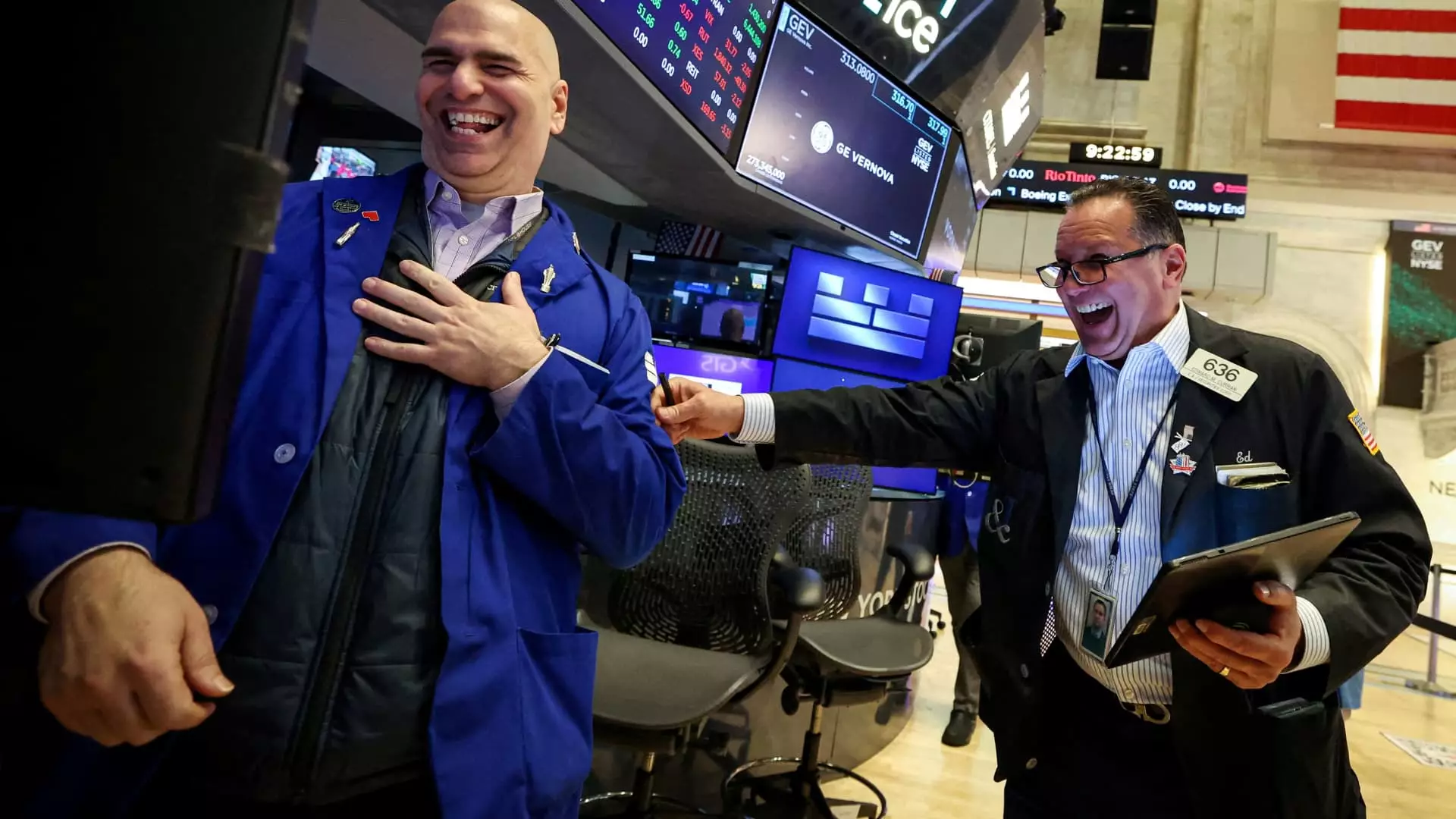Recent trends in the stock market have illuminated a disturbing reality: short selling is not merely a trading strategy but a powerful catalyst for dramatic market fluctuations. As hedge funds rush to cover their losses following the recent two-day rally, their actions exemplify a perilous cycle that undermines both the market’s stability and investor confidence. This isn’t just a financial quirk; it’s a reflection of systemic vulnerabilities that need to be addressed.
Short sellers operate under the premise that they will profit from declines in stock value. They borrow shares to sell, hoping to buy them back at lower prices. When the market goes against them, forcing them to buy back at higher prices creates a frantic “short squeeze.” Unfortunately, this action invariably leads to volatility that has little to do with actual market fundamentals. The growing instability within our financial markets prompts a pressing discussion: Should we continue to tolerate the rampant behavior of short sellers that contributes to unnecessary market shakiness?
The Short Squeeze Phenomenon
Recent events serve as a testament to the momentum generated by short sellers and the inherent risks involved. The stock market’s remarkable upswing amid uncertain trade negotiations is largely attributable to hedge funds scrambling to cover their short positions. Indeed, this tactic of ruthlessly pursuing profits creates a market environment susceptible to abrupt swings, often leaving average investors in a quagmire. When hedge funds, driven either by desperation or greed, trigger a market rally without substantive backing, ordinary investors are left wondering whether their assets hold any actual value.
The latest data from Goldman Sachs indicates a notable increase in bearish positions. While it is natural for institutional investors to hedge against potential downturns, the colossal betting against stocks is tantamount to gambling with fire. If anything, this game of market roulette sends a clear signal that a more prudent approach is needed to mitigate the effects of reckless short selling.
Political Factors at Play
Political sentiments undoubtedly play an integral role in shaping market behavior. Recent tweets and statements from President Trump impacted traders and their reactions, causing sudden shifts in investor confidence. These fluctuations are often exaggerated by short-selling activities, leading to brief surges in what should be consistent value stocks. When mood swings in policy cause price volatility, it may be time to reevaluate whether focusing solely on speculation serves as a healthy approach within our financial system.
Trump’s fluctuating rhetoric on trade agreements with China and statements regarding Federal Reserve Chair Jerome Powell reveal an unsettling truth: markets can become hostage to transient political winds. Investors are left shaking as they grapple with the duality of attempting to navigate real economic fundamentals while simultaneously being subject to the whims of political maneuvering.
The Myth of a Robust Market
Despite the recent surge, evidence points to an underlying fragility. Although the Dow Jones Industrial Average showcased a startling 1,100-point rise, does anyone genuinely believe this rally stems from solid foundations? The market’s retraction later in the day belies the notion that these gains are sustainable. And if hedge funds remain entrenched in short positions rather than pivoting towards long bets, one has to question the legitimacy of this short-lived ascent.
Moreover, Goldman’s John Flood’s observation that hedge funds haven’t yet transitioned to an outright bullish stance signals a lack of confidence in the rally’s longevity. This creates a deceptive illusion of prosperity that could snap back with alarming rapidity. When investors are preoccupied with attempting to hold on to gains prompted by transient sentiments rather than committing to solid, long-term positions, it raises larger questions about market integrity.
Bringing Market Discipline Back
Market discipline must be restored. Regulating short selling with more oversight could spur a healthier trading environment. If we truly wish for the markets to be a reflection of economic realities rather than tactical gambling arenas, stringent policies must be introduced that prevent the excessive manipulation of stock prices. Además, education about the risks of short selling should be a priority for regulators to enlighten retail investors who often engage in the stock market battle uninformed.
Ultimately, the rise and fall of stock prices should mirror the true financial conditions of businesses, not be subjected to the capricious behaviors of hedge fund short sellers. Without significant reform and a renewed dedication to responsible trading practices, we risk further entrenching speculative volatility at the expense of the broader investment community. It’s high time to redefine what it means to invest in the stock market with integrity.

